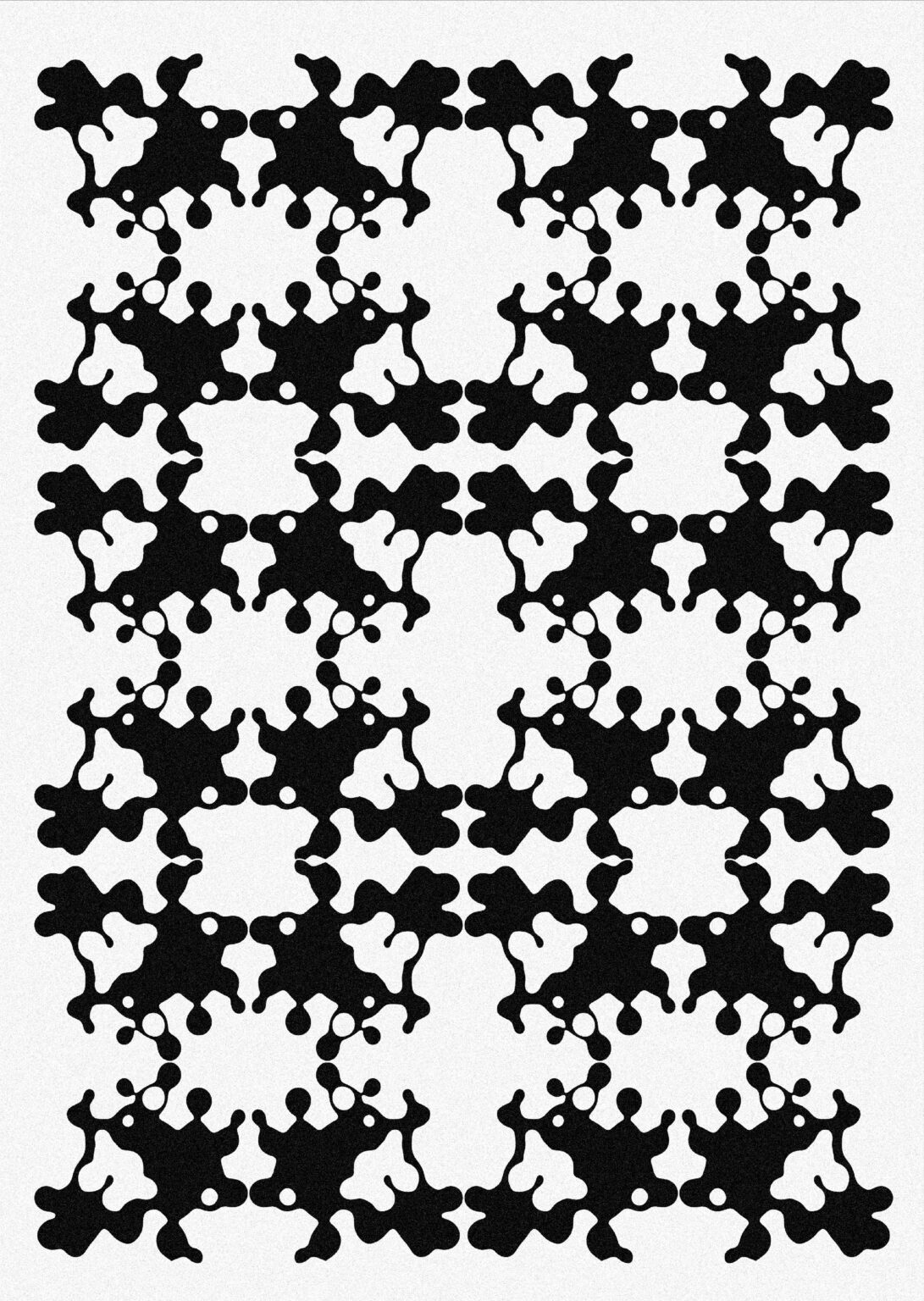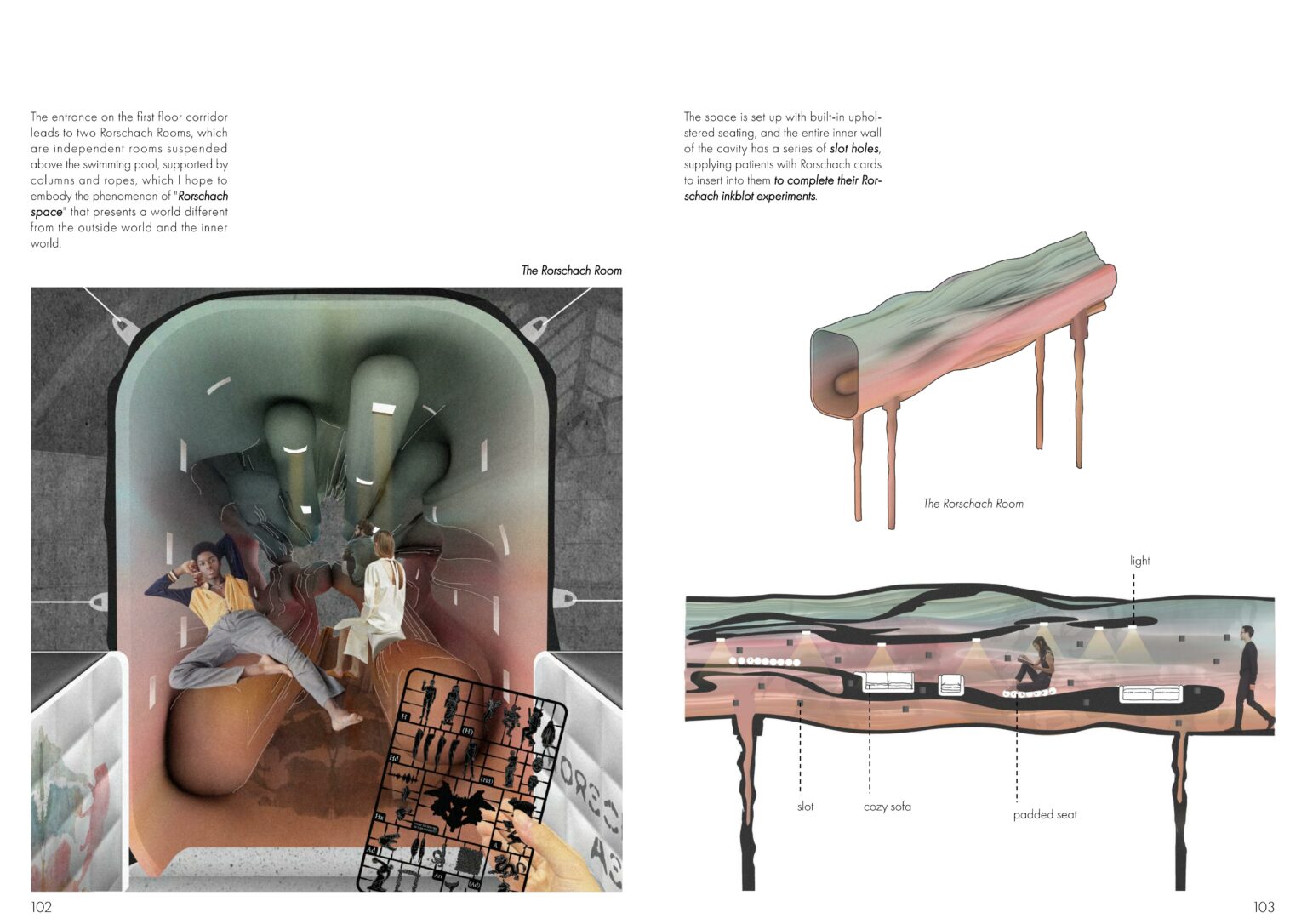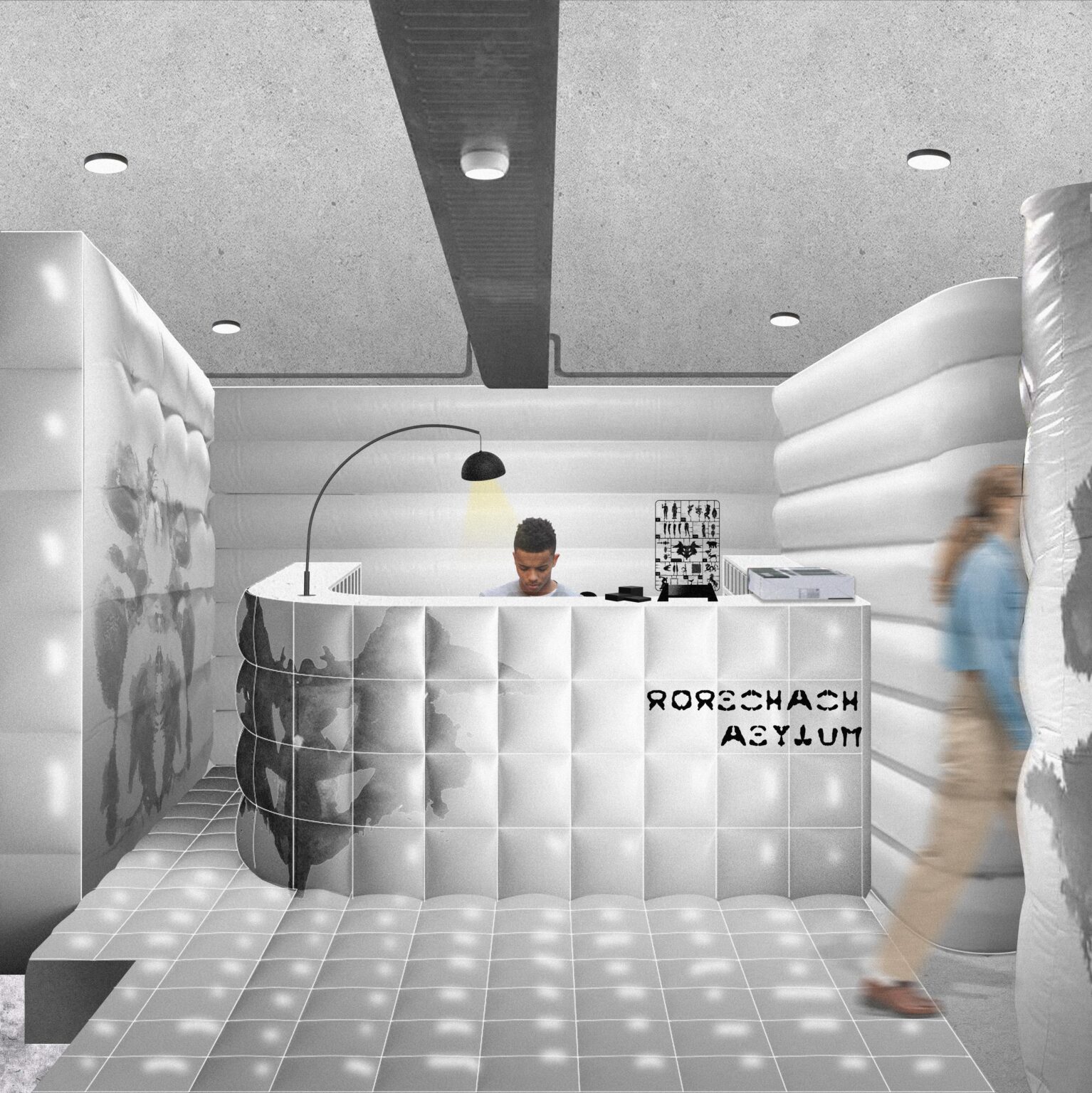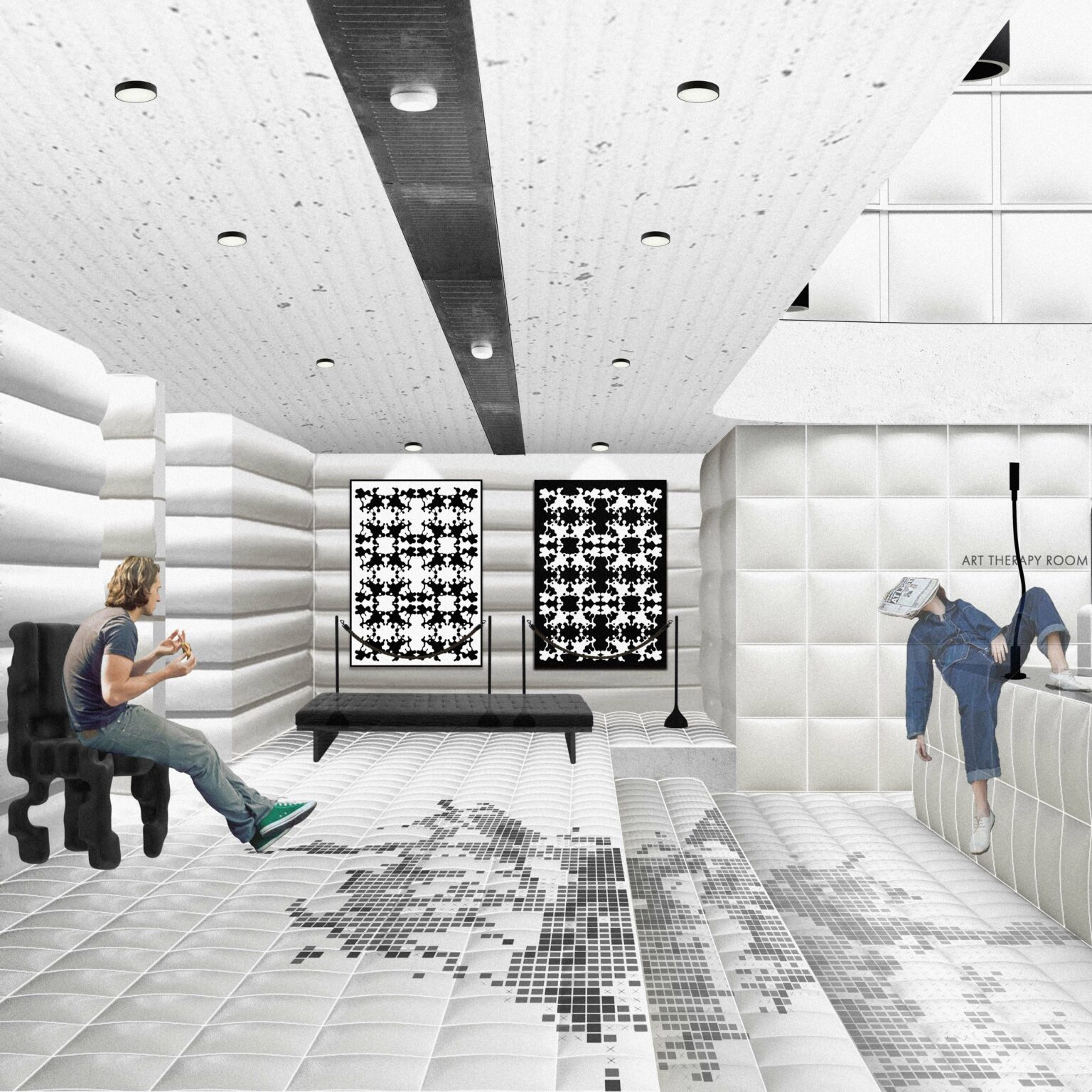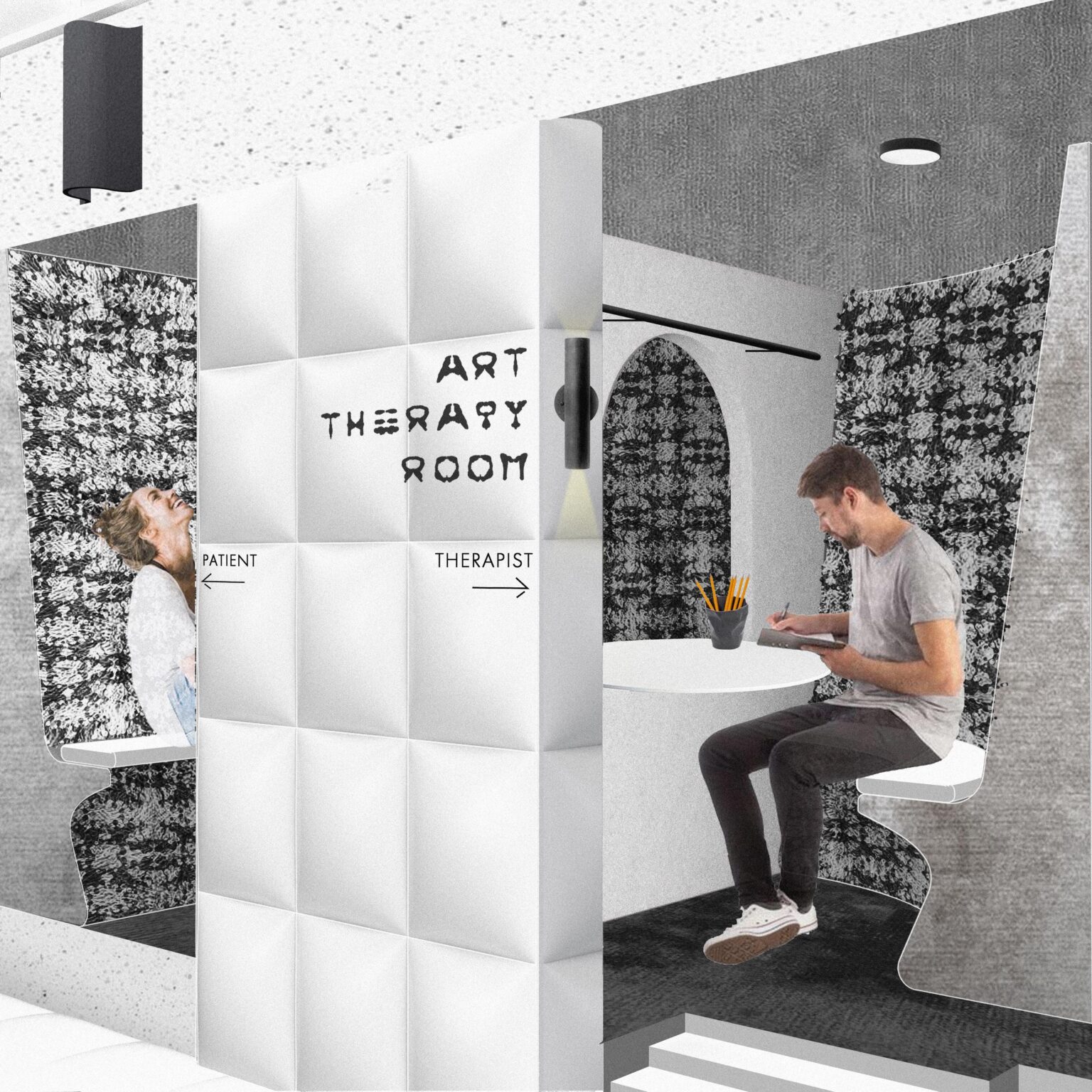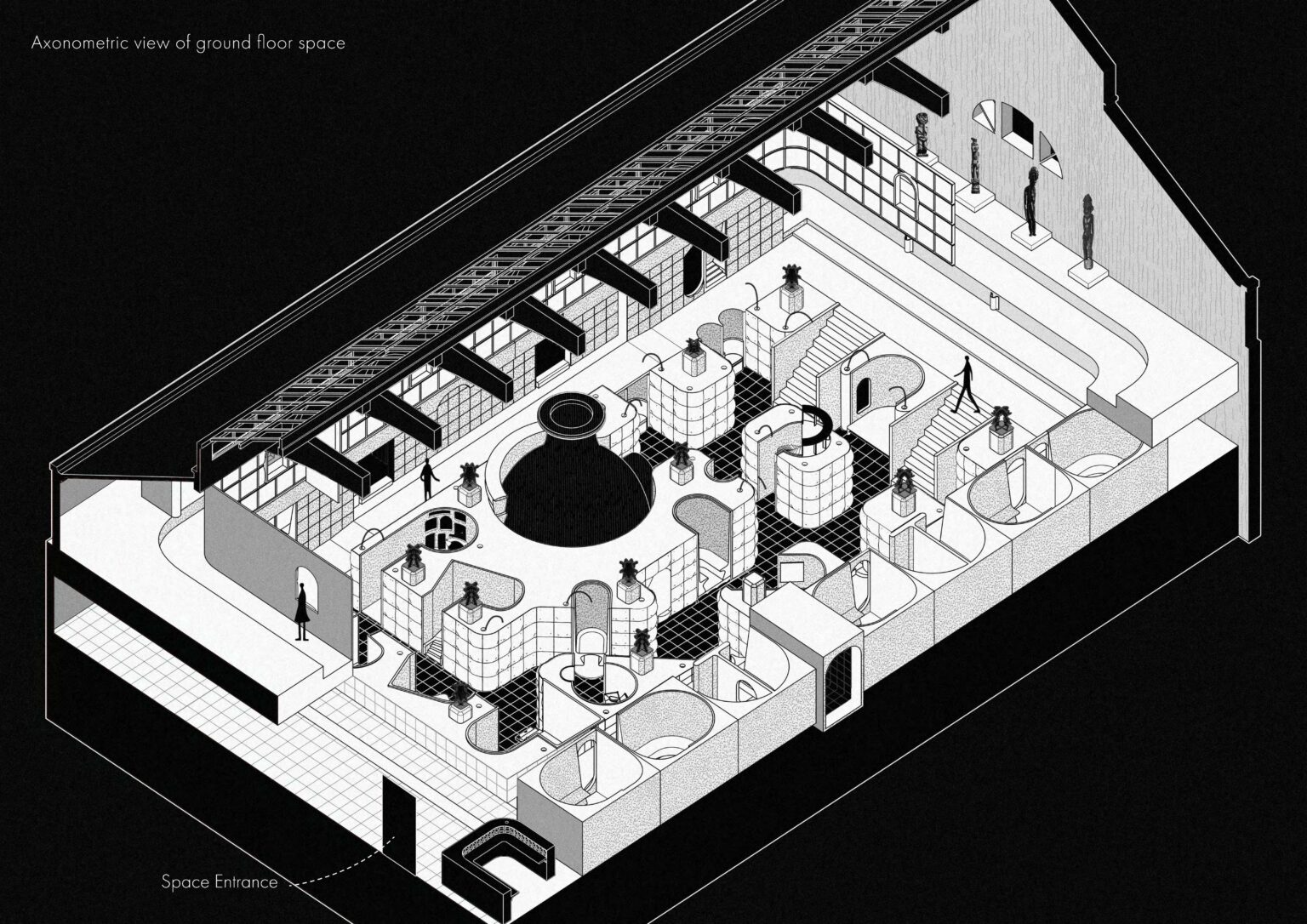Kesong Cui

The academic background of curating and exhibition makes me deeply interested in the poetic interpretation of space in various contexts and literary materials, which has inspired me to think about the uncertainty and narrative of space. Nowadays, as an interior designer, I am committed to researching the deep fusion of context, narrative, and healing. I try to reflect on the nature of “space” and explore transformative modes of spatial experience by integrating design into different literary, social, or historical contexts, meanwhile, I am also dedicated to exploring how to utilize the uncertainty and multiple perspectives of space for the well-being of people, to construct spaces that resonate with users on an emotional level, promoting the creation of healing environments.

The Rorschach Asylum
Popular literature suggests that schizophrenics have found a place in human society – however reluctantly: some of them are considered “creative anti-social artists”, from Van Gogh to Adolf Wölffli, who uses art as a medium for constructing themselves and confronting their mental anguish. The problem is, however, that the world is always more punitive than caring, and I have often wondered if these special artists also need a “safe” place to “go mad,” a positive space in which to experience mental anguish and enlightenment! The aim of this project is to explore how schizophrenic patients can explore their artistry and inner world in space by researching the Rorschach inkblot projective experiment, the concept of art therapy, and the typological commonalities between psychiatric hospitals and gallery spaces, in order to construct a speculative “asylum” that could replace traditional medication or surgery. Here, more romantic treatments will replace scientific rigour, creativity will be encouraged, and bizarre delusions will be communicated!
Inspiration
The project was initially inspired by the drawing ‘Ship of Fools’, a boat carrying the mentally ill through the rivers between villages, which captures the scene of multiple patients embracing their madness and disorder after being abandoned by asylums, full of joy. This leads me to propose an assumption, maybe finding a safe place to go ‘mad’ isn’t a bad thing.
I often wonder if schizophrenic people also need a “safe” place to “ face their disorder” to escape the cruel world, as is always more punitive than caring.
Based on this hypothesis, I tried to answer the question of how to create a positive space that facilitates people with schizophrenia to face their mental anguish and get enlightenment.
Prinzhorn, in his book ‘The Artistry of the Mentally Ill’, states that “The world of art is the world of madness, where it belongs as it should ……” Interestingly, in modern popular literature, however reluctantly, schizophrenics have found their special place in society. they are seen as eccentric, skilled artists compared to ordinary people, from Van Gogh to Adolfo Wolffley, they all chose art creation as a medium to face their mental anguish and get healed.
This lead me to further hypothesise whether an art space could be an idealized, positive space for those special artists.
This art world would be a speculative “asylum” without traditional drugs or surgery, the “art creation” would replace all these rigorous sciences.
Rorschach World
There is a common phenomenon behind schizophrenic artists’ fantastic artworks, Projection. The patients all unconsciously reveal their past experiences and the dark side of their hearts in their creations, such as terrible childhood experiences, evil beliefs, and their sufferings. Therapists consider projection to be a self-defensive mechanism where the patients attribute their negative emotions and experiences to other objects or person to alleviate their anguish. Inspired by this, I hope to construct an art asylum in this project that could encourage people’s self-projection to face their mental anguish, release anguish and get enlightened.
Rorschach Inkblot Test, the most famous psychological projective test in history, and it is also the most classic case of combining art and psychology in history. In this test, patients were required to look at ambiguous inkblots to answer what they saw. The imagery seen in the patterns projected their subconsciousness, revealing their true inner world and pain.
Berent Willock in his book “ Projection, Rorschach and Transitional space” suggests that when people step into a space filled with ambiguous visual stimuli, they initiate an unconscious process of construction, trying to use their own real experiences to construct self-perceptions, in order to find a balance between their inner and outside worlds, to escape from their sufferings.
Berent goes further with the idea of Rorschach world, arguing that the inkblot test helps people enter a separate world, a bridge of connection that helps people find a window of projection for their pain outside the reality.
This makemakesbelieve that Rorschach could be a solution for constructing a speculative asylum. So I try to work out how to incorporate Rorschach into the design of a space.
Design Process
I believe that Rorschach could be a solution for constructing a speculative asylum. So I try to work out how to incorporate Rorschach into the design of a space.
By graphically analysing the Rorschach inkblot I have summarised several characteristics, including symmetry, ambiguity, shading, and a sense of movement
This prompted me to conduct experiments, attempting to place Rorschach inkblots into my design.








